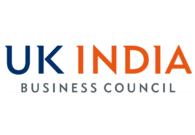Conclave: What businesses want from the new UK Government to better the UK-India trade and investment relationship
UKIBC Chair Lord Davies of Abersoch and CEO Richard Heald led a roundtable discussion with UK business and higher education leaders on the future of the UK-India trade and investment relationship beyond the UK General Election.
All agreed that the post-election period will be a moment of immense opportunity for the new UK Government to reignite the UK-India bilateral relationship. And there is a strong desire for this from business, as evidenced by the UKIBC’s recently published Doing Business in India Report 2019, which found that 26% of UK companies plan to do more business with India as a direct result of Brexit, while none said that Brexit would mean they do less.
The overarching theme that grouped the attendees’ suggestions was that the UK must set clear goals on what it wants from its relationship with India, ensure that these objectives align with India’s priorities, and introduce a clear delivery plan that unifies the existing dialogues.
The UK is well-suited to supporting India in its ambitious growth plans with the expertise, technology and knowledge to drive the Indian economy. Industries like data, advanced manufacturing, renewable energy and healthcare are all areas that India has actively targeted for growth as well as areas that the UK can provide world-leading expertise and, indeed, learn from India.
The UK, by building a narrative around how its strengths complement India’s, can set the tone for a hugely successful refresh of the bilateral relationship.
A particular area of common interest is in the Sustainable Development Goals, including climate change, providing opportunity for UK businesses and the UK Government to demonstrate a genuine commitment to India. The UKIBC’s recently launched campaign to develop UK PLC’s extremely positive socio-economic impact in India will be an important strand of work. UK companies are already having a positive social impact in India and there is an appetite to do more, particularly in relation to education, healthcare, water, and gender equality.
At the same time, there is clearly governmental alignment over the next 12 months given that India took on an important leadership role at the 2015 UN Climate Change Conference in Paris by establishing the Global Solar Alliance, and the UK is hosting the next Conference in Glasgow in November 2020.
So, the opportunity is there but what about the challenges?
There was a discussion on the need to realise the potential of the UK-India Technology Partnership launched by Narendra Modi and Theresa May in April 2018. And the need for HMG to find a way of helping tech-rich UK SMEs find partners and success in India.
Greater student and academic interaction are critical to build the people-to-people and R&D partnerships that will future-proof the UKIBC relationship and provide the talent and technology needed for both economies to thrive. But, as set-out in the latest UKIBC report on Higher Education Futureproofing the UK India Partnership there are barriers preventing such partnerships, including the lack of a mutual recognition of qualifications agreement and restrictions on UK universities delivering degree education in India.
Discussions closed with widespread agreement that this is a golden opportunity for UK to build on its fruitful relationship with India. By building a strategic narrative and being clear on what the UK and India can do for each other, both countries can see immense benefits.
The UKIBC looks forward to working closely with businesses and with both governments to support the UK-India bilateral relationship.






